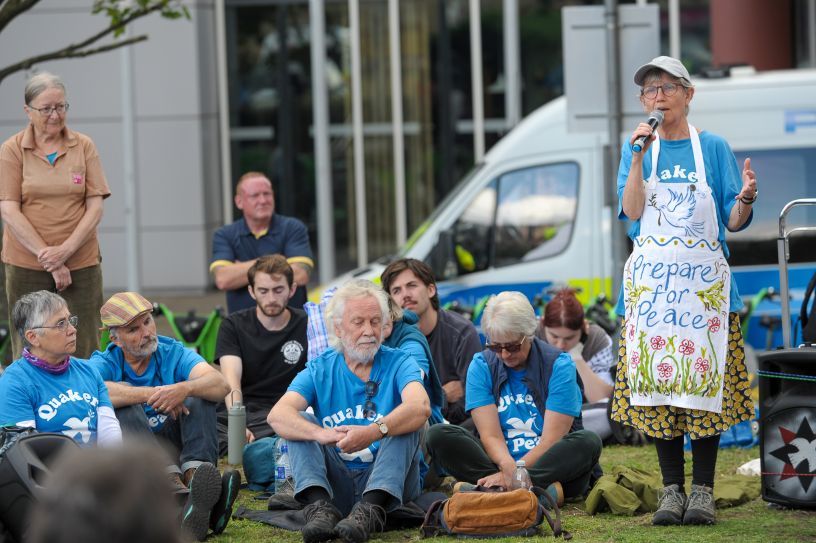Quakers warn new protest powers "dangerous and unnecessary"
Quakers in Britain have warned that new government plans to tighten protest laws even further are "not only unnecessary but dangerous".

The plans threaten both civil liberties and their ability to live out their faith, Quakers said.
Home Secretary Shabana Mahmood has announced proposals to give police greater powers to consider the "cumulative impact" of repeated demonstrations.
[QUOTE-START]
Repeated protests are not a threat - they are a sign of deep public concern and a vital expression of democracy
- Paul Parker
[QUOTE-END]
The change would allow officers to move or restrict protests if a site has been used frequently, with the Home Office saying the powers will be introduced as soon as possible.
The plans follow a series of increasing numbers of nonviolent protests against the genocide in Gaza, far right marches and targeted harassment against asylum seekers that have stretched police resources.
Currently, police can only ban a march entirely if there is a risk of serious public disorder and static protests, rather than marches, cannot be banned.
Under the new proposals, conditions could be imposed more easily, including limits on location, duration or size of gatherings.
Paul Parker, Recording Clerk for Quakers in Britain, said repeated protests should not be seen as a problem but as evidence of genuine concern.
"Repeated protests are not a threat - they are a sign of deep public concern and a vital expression of democracy," he said.
"For Quakers, faith and action are inseparable. Peaceful protest, prayer and nonviolent action are integral parts many Quakers' religious life.
"When these are criminalised, it threatens civil liberties but also leads to Quakers facing legal consequences for actions motivated by love for our neighbour."
In March, Quakers' representative body, Meeting for Sufferings, warned of “creeping repression on the part of the state" which could undermine public trust.
"We must commit ourselves, both individually and collectively, to resisting the oppressive power of the state where this is necessary," the body said.
The announcement comes less than a month after Quakers and other groups submitted evidence to a government review of protest legislation.
The review was launched after the Court of Appeal struck down parts of the Public Order Act in May, ruling that ministers had unlawfully broadened the definition of "serious disruption".
In their submission, Quakers said the threshold for police interference with protest “is now too low and is having a chilling effect on civil society".
Between June 2022 and March 2024, at least 712 protests in England and Wales were subject to police conditions.